As so many of us transfer from being attached to a fixed office space to being able to work flexibly in our homes, it comes as no surprise that some nations around the world are welcoming remote workers who are looking to relocate from the US. Most of the places we have listed here with digital nomad visas tick one, if not all, of the following boxes: good weather, an affordable cost of living, a supportive work-life balance, an exciting culture, and an interesting food scene.
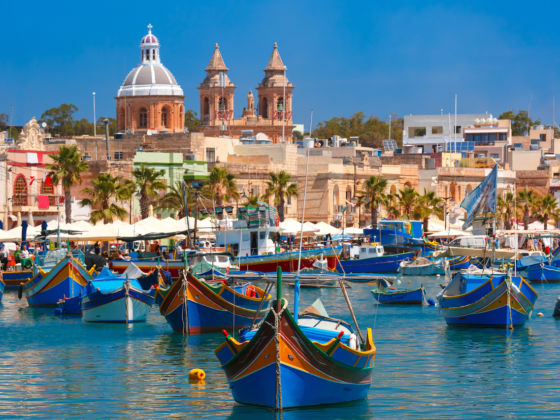

The 20 Best Digital Nomad Visas From Around the World
From tropical Caribbean islands to magical European destinations, here are some of the countries offering the best digital nomad visas from around the world.
North America
Mexico
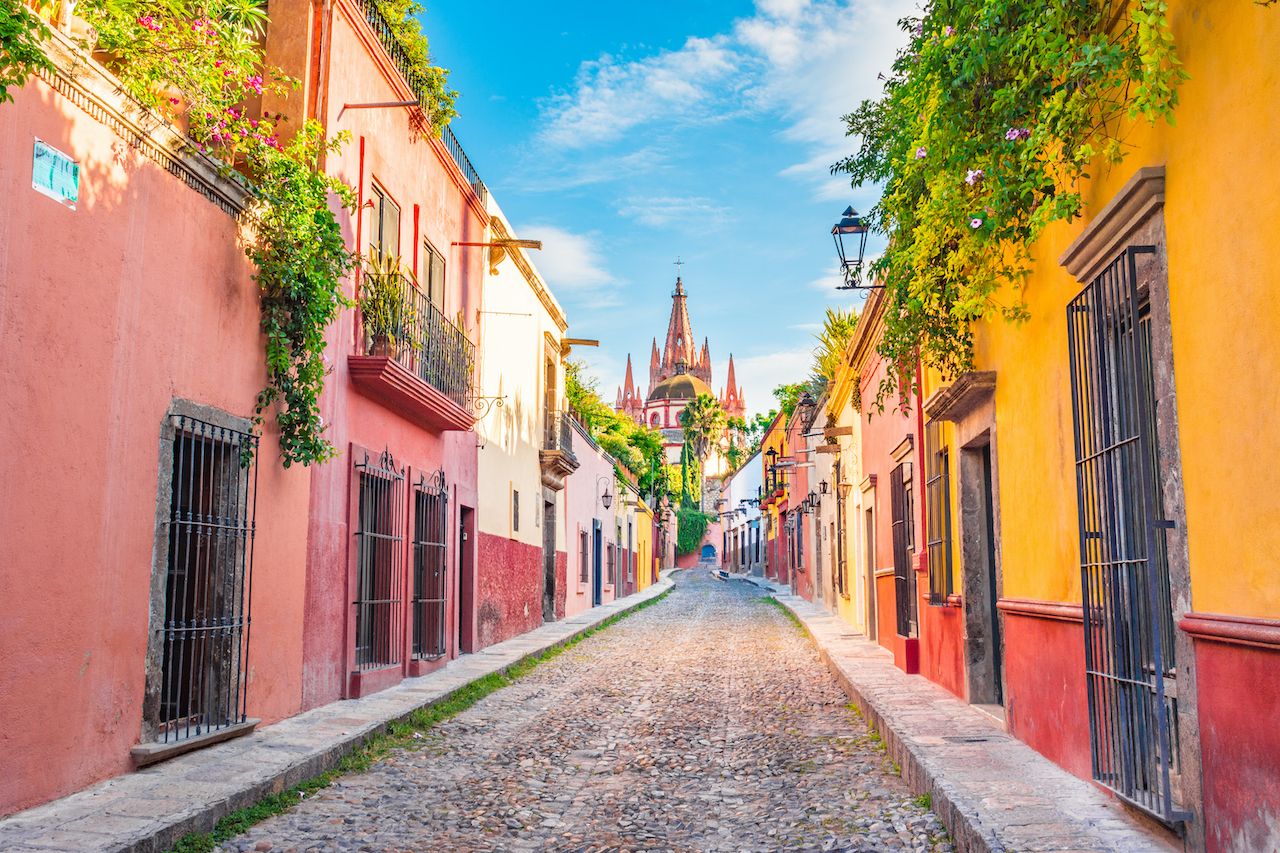
Photo: Rubi Rodriguez Martinez/Shutterstock
Mexico is clearly an attractive and somewhat obvious option for US citizens who are looking for a different pace of life and a change of scenery. The one year, temporary resident visa in Mexico is not new, and if you meet the criteria and stick to the guidelines, you have the option to extend this visa for an additional three years. For this visa, you need what they call “economic solvency” to prove that you have an income of more than $4,100 USD per month or an account balance of over $68,000. Under this visa, you can’t work for a business or individual within Mexico, meaning you’ll have to have a remote job stateside.
North America
Antigua and Barbuda
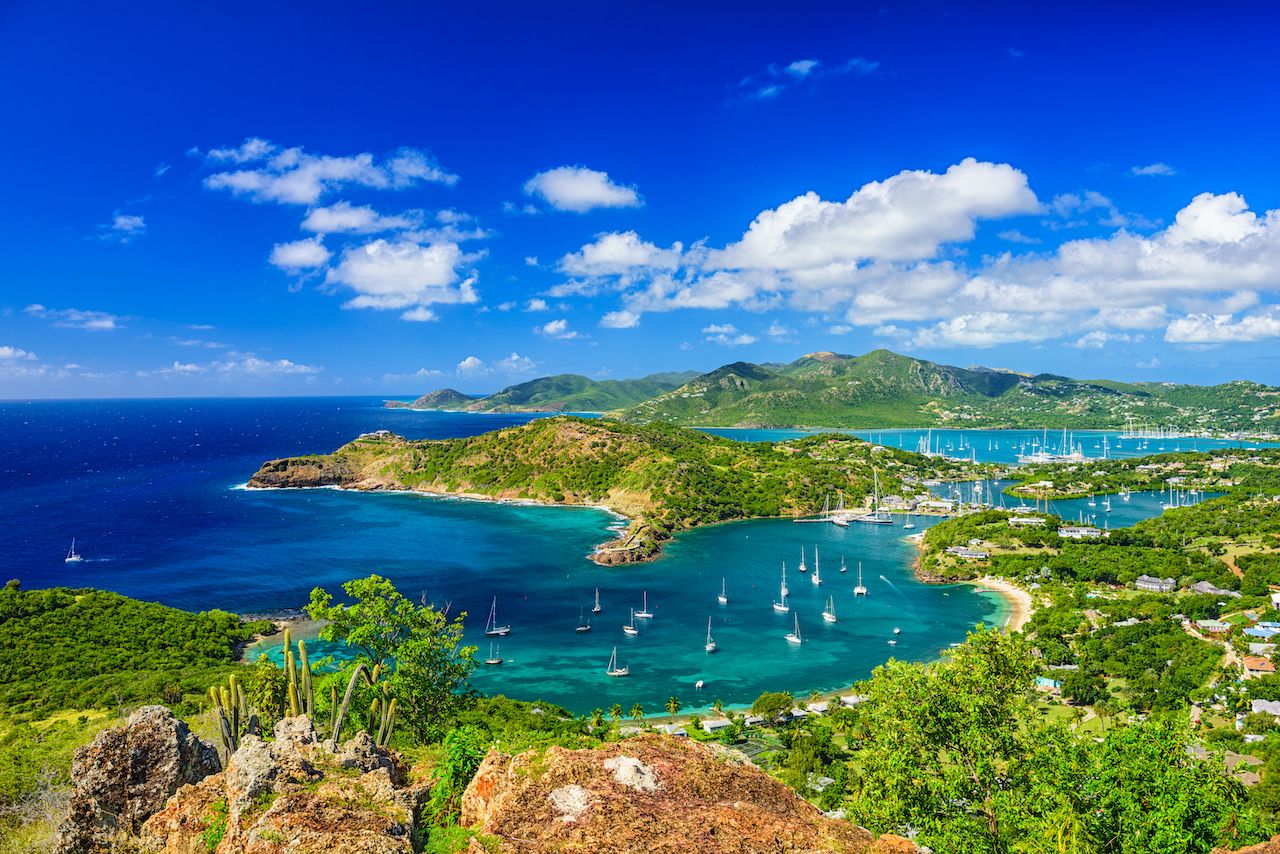
Photo: Sean Pavone/Shutterstock
The Caribbean nation of Antigua and Barbuda launched their remote worker visa program October 2020. Positioned on the border of the Caribbean and Atlantic, the islands are well known for their beautiful protected reefs, rainforest topography, and stunning beaches — of which there are 365.
The two-year Nomad Digital Residence program has a few stipulations. You must earn at least $50,000 a year, and your employers can not be from the nation (though self-employed individuals or freelancers with clients outside the country are also eligible). There is also an application fee of $1,500 for an individual, $2,000 for a couple, and $3,000 for a family of three or more. The nation also requires you to have the correct health insurance.
Aruba
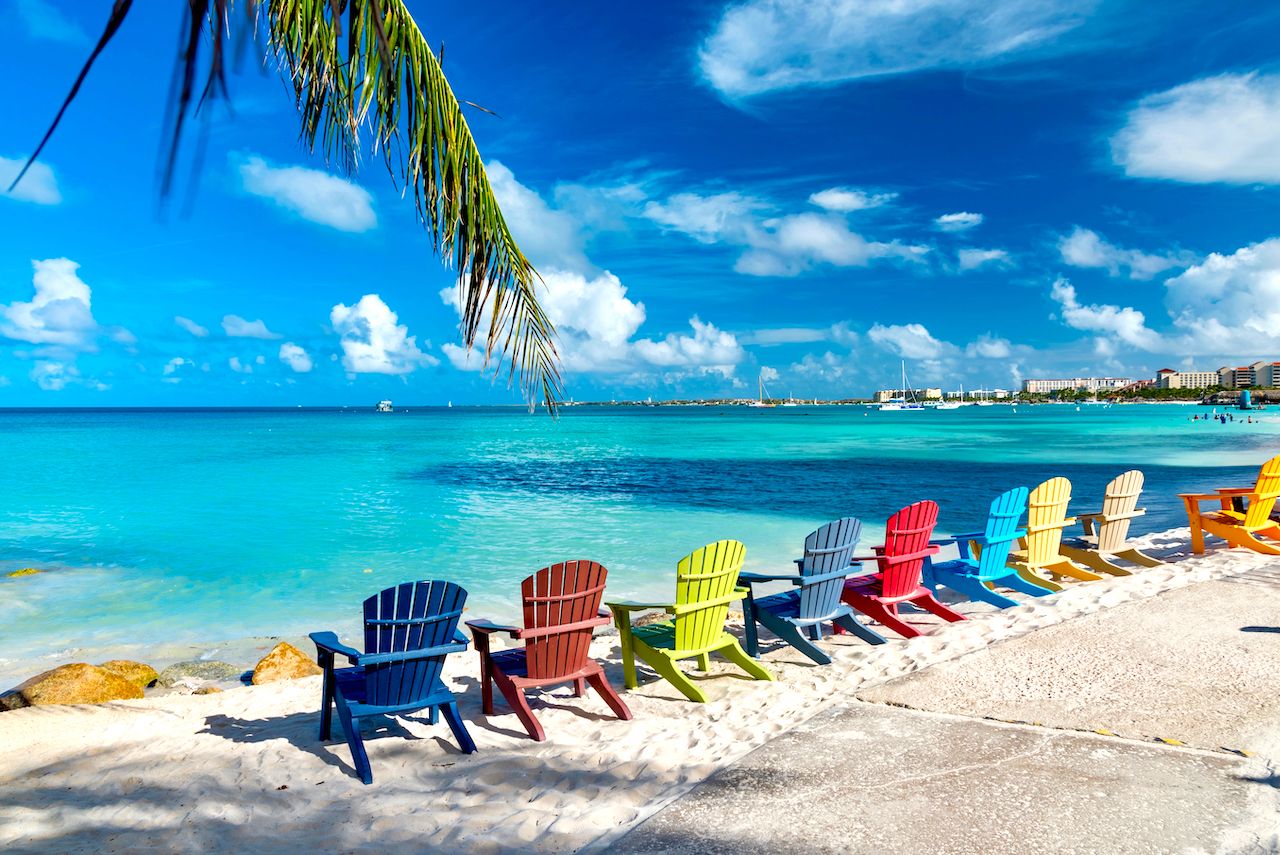
Photo: DiegoMariottini/Shutterstock
The Caribbean island of Aruba is part of the Netherlands, so the fusion of laid-back Caribbean culture and that of the Dutch influences everything from the architecture to the cuisine. It was also one of the first Caribbean islands to open to tourists after COVID-19 travel restrictions in 2020, but there are still a few things to consider before embarking on a new start.
The government is offering remote workers a chance to live and work on the island for a maximum of 90 days with its One Happy Workation visa. Other initiatives — such as discounted rates for accommodation, outdoor experiences and local activities, and the promise Wi-Fi zones — make this option even more appealing.
There are a few stipulations, but in comparison to many other nations, the Aruban government is not asking you to jump through too many hoops or have a bulging bank account. To apply for this extended stay, you must be employed or self-employed in your home country, and during the 90 days, you cannot work for a local company or individual. You must also hold a valid US passport on the date of entry and throughout your stay.
Barbados

Photo: zstock/Shutterstock
If working from a Caribbean beach surrounded by rich culture and world-class cuisine sounds idyllic, the beautiful island of Barbados launched its version of a remote working visa in July 2020. This visa, called the Barbados Welcome Stamp, allows people to work remotely in the country for a year. Prime Minister Mia Mottley has spoken highly of the scheme, boasting to The Washington Post, “‘The sunshine is powerful. The seawater is powerful. They’re both therapeutic in ways that are hard to explain. And we felt that, why not share it?”
So what are the basic requirements for the pleasure of working from paradise? To start, you need to pay $2,000 for an individual visa or $3,000 for a “family bundle.” Families are being encouraged to make the most of this new initiative too. All applicants must go through the online process, which is pretty standard; upload a passport picture, copy of passport, and proof of employment and an income declaration (you must expect to earn at least USD $50,000 over the 12 months or have means to support yourself). It’s also worth noting that successful applicants do not need to contribute to Barbados Income Tax.
Curacao
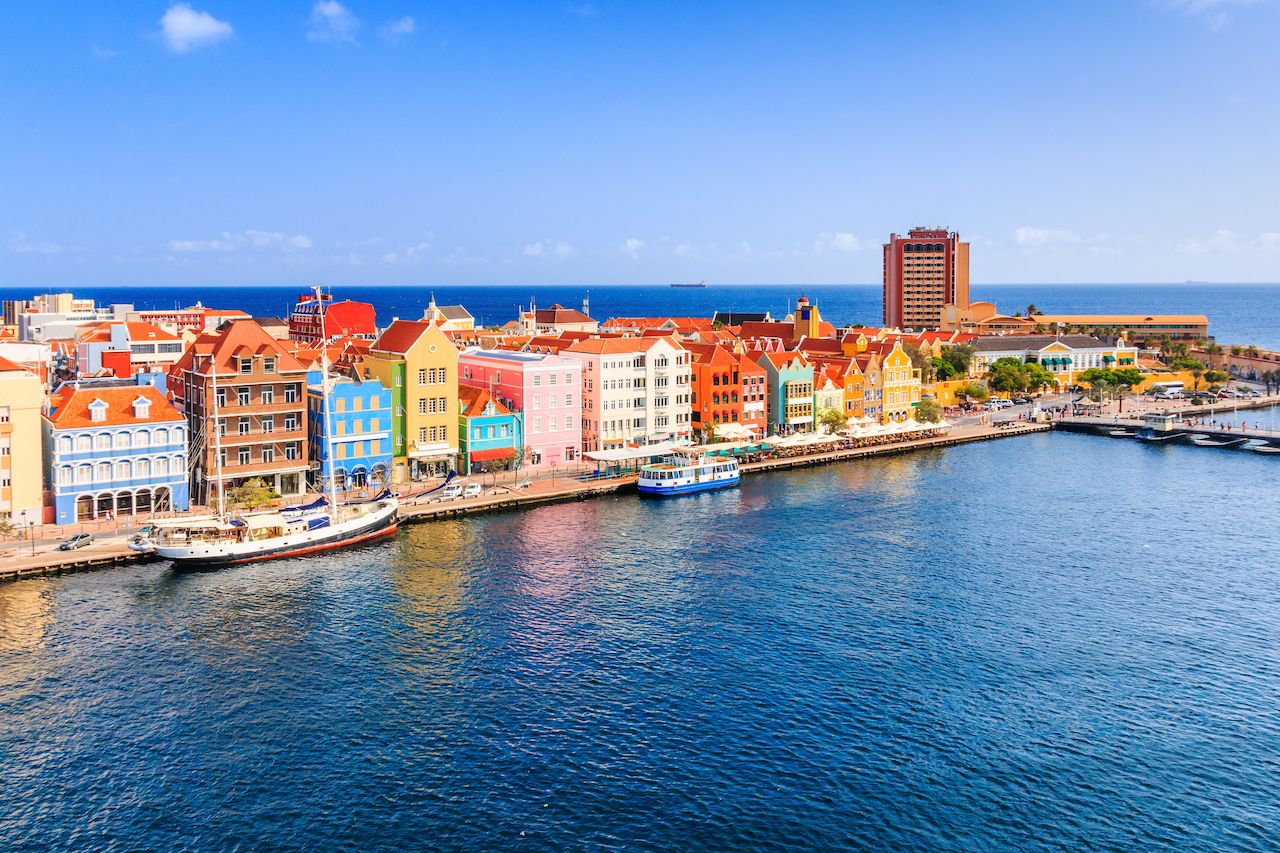
Photo: Izabela23/Shutterstock
The Caribbean island of Curacao launched a remote worker visa in February 2021, known as the @Home in Curaçao program, allowing people to stay there for up to one year. To be eligible for the visa, you must prove you have a remote job with a foreign income source (you cannot be employed by a Curacao-based company) and show evidence that you have enough money to support yourself.
The application costs $300, and grants remote workers a six-month stay, though you have the option to extend for an additional six months. The best part: You won’t have to pay local taxes while staying in Curacao. You will, however, be required to purchase valid international health insurance, as well as a round-trip ticket before arriving.
Dominica
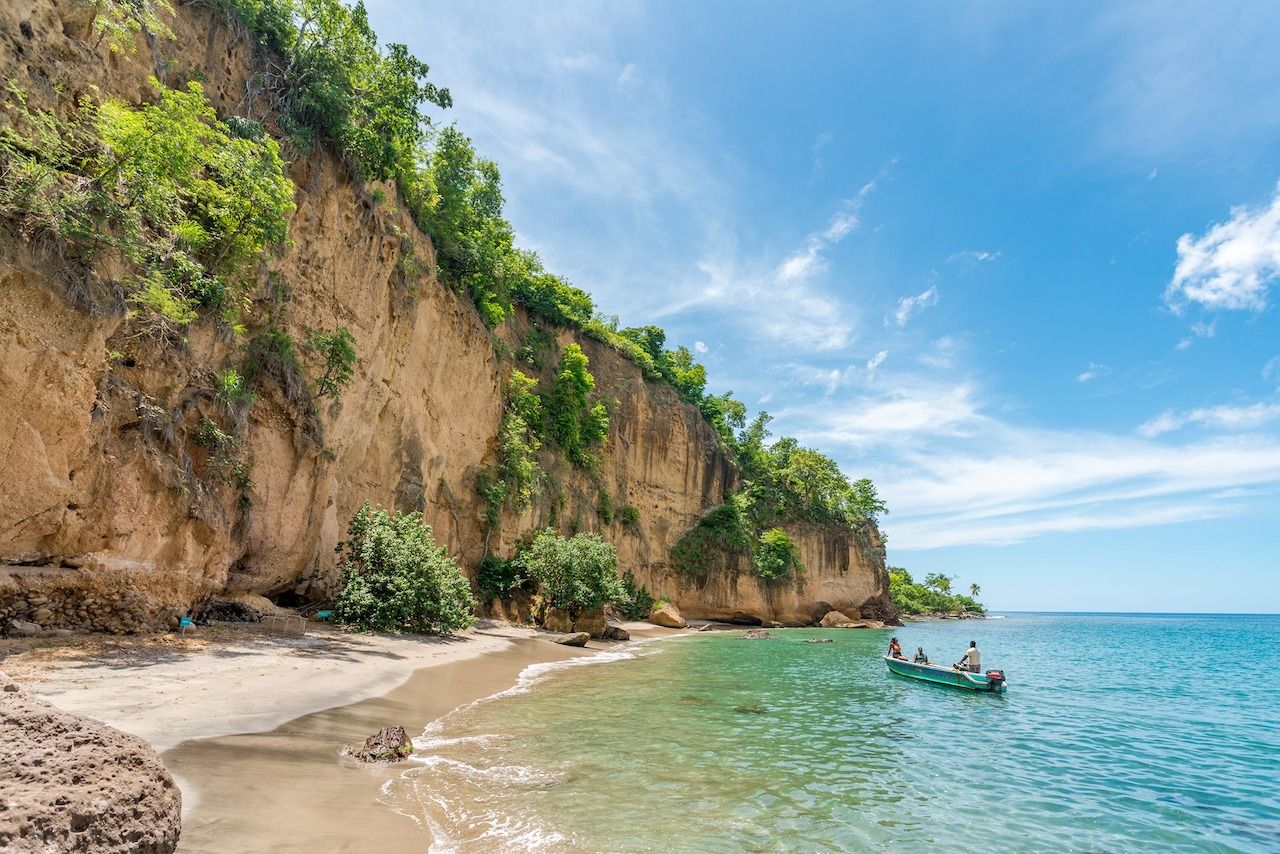
Photo: Discover Dominica/Facebook
Located between Guadeloupe and Martinique, the island of Dominica is an English-speaking nation known for its natural beauty, dramatic landscape, and the Caribbean’s first long-distance hiking trail. It’s somewhat off the beaten path, so the island is a great option for those who are looking for quiet island life in a tropical environment.
The island’s new plan, the Work in Nature visa or WIN Visa, allows remote workers to live and work there for up to 18 months. Applicants need to have an annual income of $50,000 or more and be able to support themselves and any dependents. The non-refundable application fee is $100 and the visa costs $800 for an individual and $1,200 for a family. If you’re considering this option with children, there is further information on the official website regarding school options.
Grenada
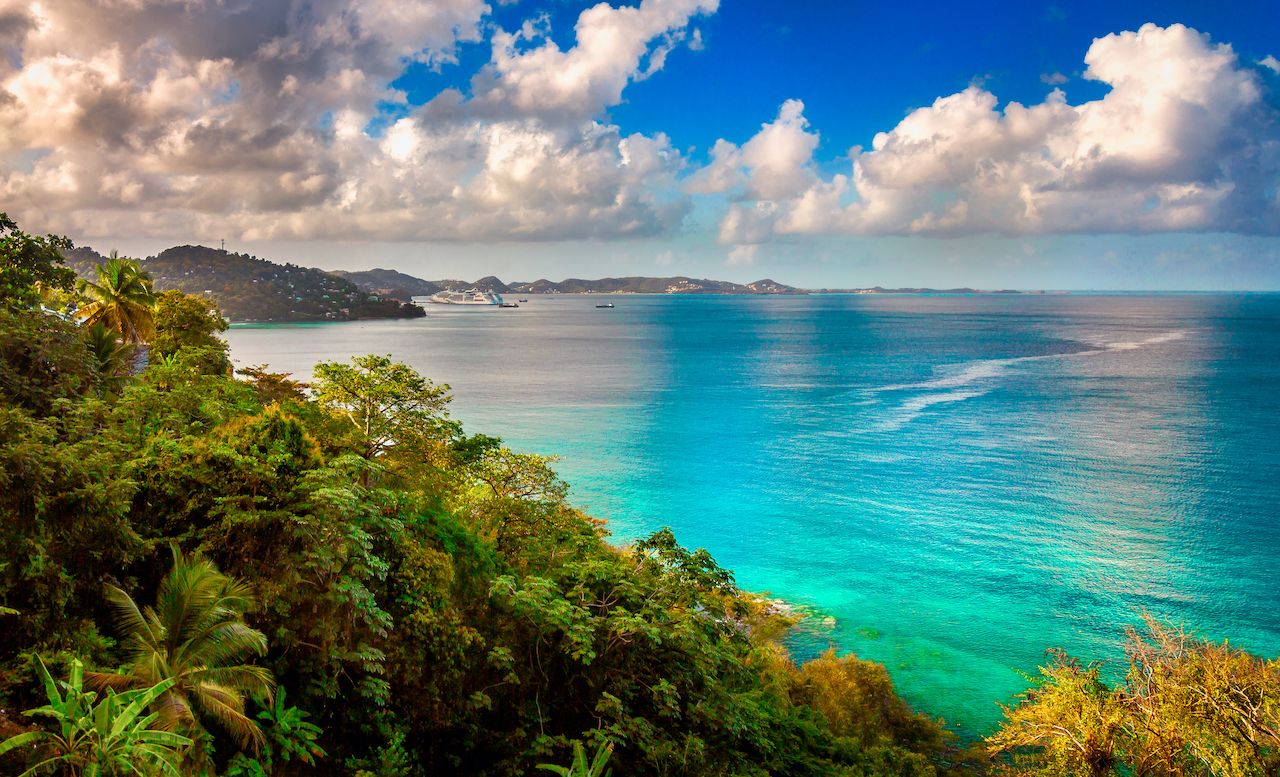
Photo: Paulo Miguel Costa/Shutterstock
In October 2021, Grenada launched its Remote Employment Visa, joining other Caribbean nations in welcoming digital nomads with a one-year residency option—renewable for an additional year. Beyond the appeal of island living, the island isn’t overdeveloped or overcrowded, offering a flexible visa option with clear benefits.
To qualify, applicants must demonstrate an annual income of at least $37,000 USD and maintain valid health insurance for the duration of their stay. The application fee for individual applicants is $1,500 USD. See the government website for more details.
Montserrat
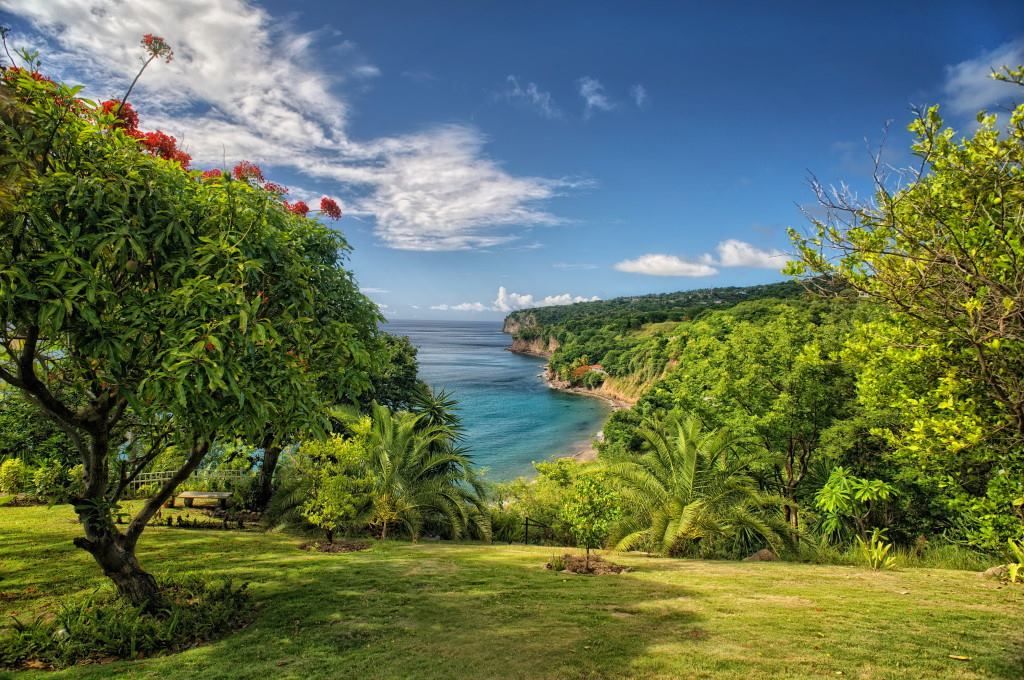
Photo: Island of Montserrat/Facebook
Application for the Montserrat Remote Workers Stamp costs $500 for an individual and $750 for an individual and up to three family members. In order to apply, you must be in full-time employment, make a minimum salary of $70,000 per year, and have valid health insurance for all applicants.
“We know there are people in various parts of the world who now have the ability to work from home and are actively looking for a change of environment. The remote worker program is not only inviting but encouraging them to come to Montserrat to work, and at the same time be more than a visitor but a part of the community on one of the world’s most unique destinations,” remarked Montserrat’s deputy premier, Dr. Hon. Samuel Joseph.
English is the main language spoken in Montserrat, second to Creole. There is also a large expat community of British nationals, but the population is an interesting and diverse mix of African, Irish, and, of course, British traditions. If you are looking for a slower pace of life, and a tight-knit friendly society, the Montserrat visa is worth looking closer into.
Central America
Costa Rica

Photo: Galyna Andrushko/Shutterstock
Costa Rica is peppered with small communities of expats who move for the country’s rich biodiversity, beautiful coastlines, and relaxed lifestyle.
In August 2021, the Costa Rican president, Carlos Alvarado, signed a law to help attract digital nomads with a one-year-long visa scheme for qualified remote workers. The one-year visa can also be able to be extended for an additional year, workers will be exempt from paying local taxes on foreign-earned income, and can legally drive in Costa Rica using their foreign driver’s license. Additionally, they have the option to open a local bank account.
In order to apply for this digital nomad visa scheme, you must be able to provide evidence of a stable monthly salary of $3,000 each month. If the applicant would like to apply with a partner or family, the joint income must be $4,000 or more per month. The income needs to be sustained remotely from Costa Rica. Applicants must also obtain health insurance to cover all parties throughout the duration of their stay. Visa application fee costs $190 USD.
Europe
Czech Republic
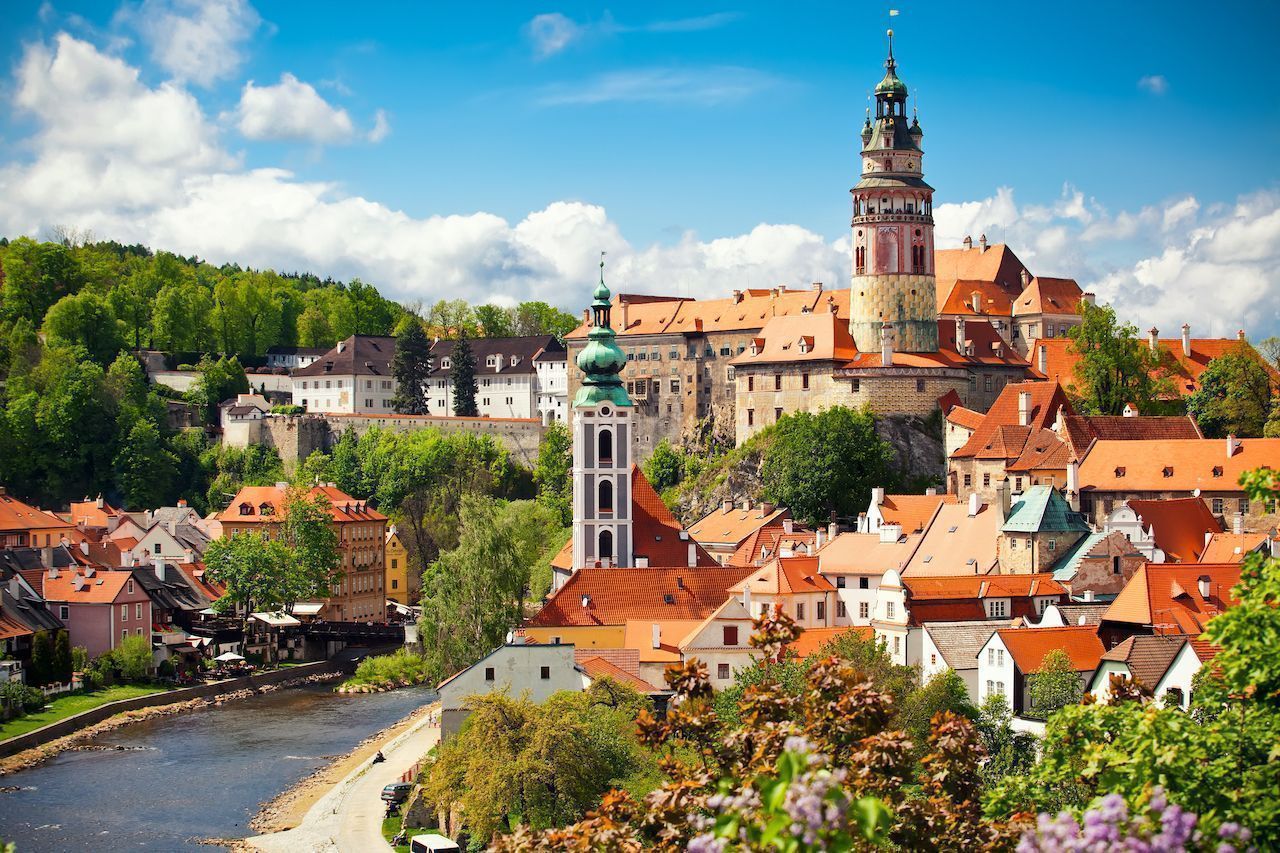
Photo: Veronika Galkina/Shutterstock
The Czech Republic has been offering US citizens a long-term business visa for quite some time. For years, people have been taking advantage of this opportunity that welcomes remote workers to live in an affordable location with superb links to major European cities. Its busy yet charming cities and sprawling countryside peppered with castles make this a perfect base if you are looking for a country with diversity in the heart of Europe.
In order to apply for the visa, the application will need to be submitted in person at the Czech Embassy or your consular office in the US. You must be outside of the Czech Republic and on US soil when the visa is electronically added to your passport.
The process for applying is detailed and requires careful preparation, including notarized documents, proof of accommodation, a business plan, and other specific requirements, which includes making sure you have all the documentation notarized and attending an interview at the embassy. You also have to prove you have at least $7,000 for the year of your stay and the fee to apply is around $225 USD. Further information about the details of the visa and the application form can be found here.
Estonia
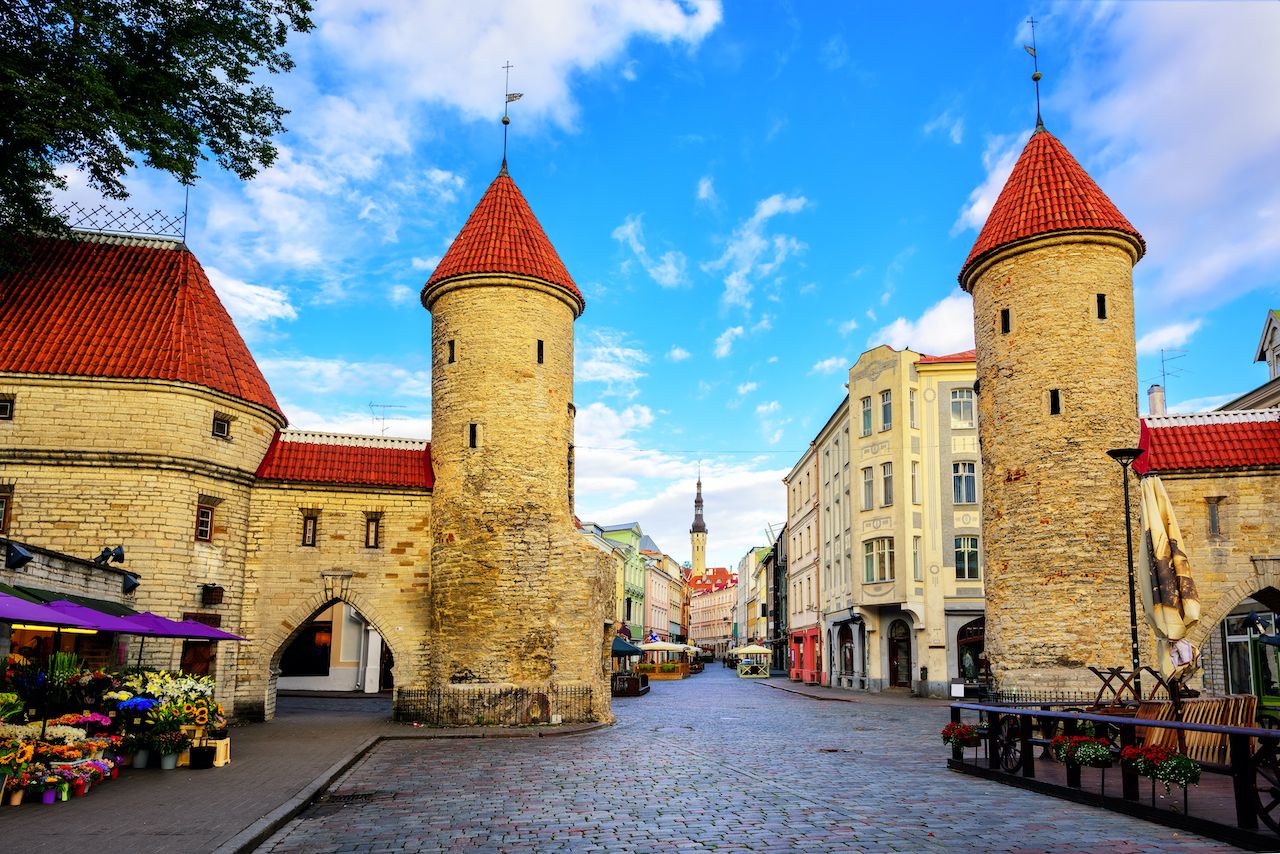
Photo: Elena Stepanova/Shutterstock
If the Caribbean does not fit your lifestyle, you can consider relocating in the future to Europe. The small Baltic country of Estonia voted to amend it’s Alien Act in order to allow remote workers to live and work in the Baltic country for up to one year.
Often overlooked, the nation might be a little out of the way, but it is home to some of the prettiest towns and cities and diverse national parks in the region. This program is ideal for those seeking a blend of medieval charm and modern digital infrastructure.
In order to apply for Estonia’s extended visa program, Type D long-stay visa, — the Digital Nomad Visa — you must be able to show that you have a steady income of at least €4,500 (approximately $5,100 USD). There is also a $125 USD processing visa fee and you will need a valid contract of employment and proof of salary. Once you’ve got all that put together, you will be required to go to your local Estonian Embassy or Consulate to submit your application.
Georgia
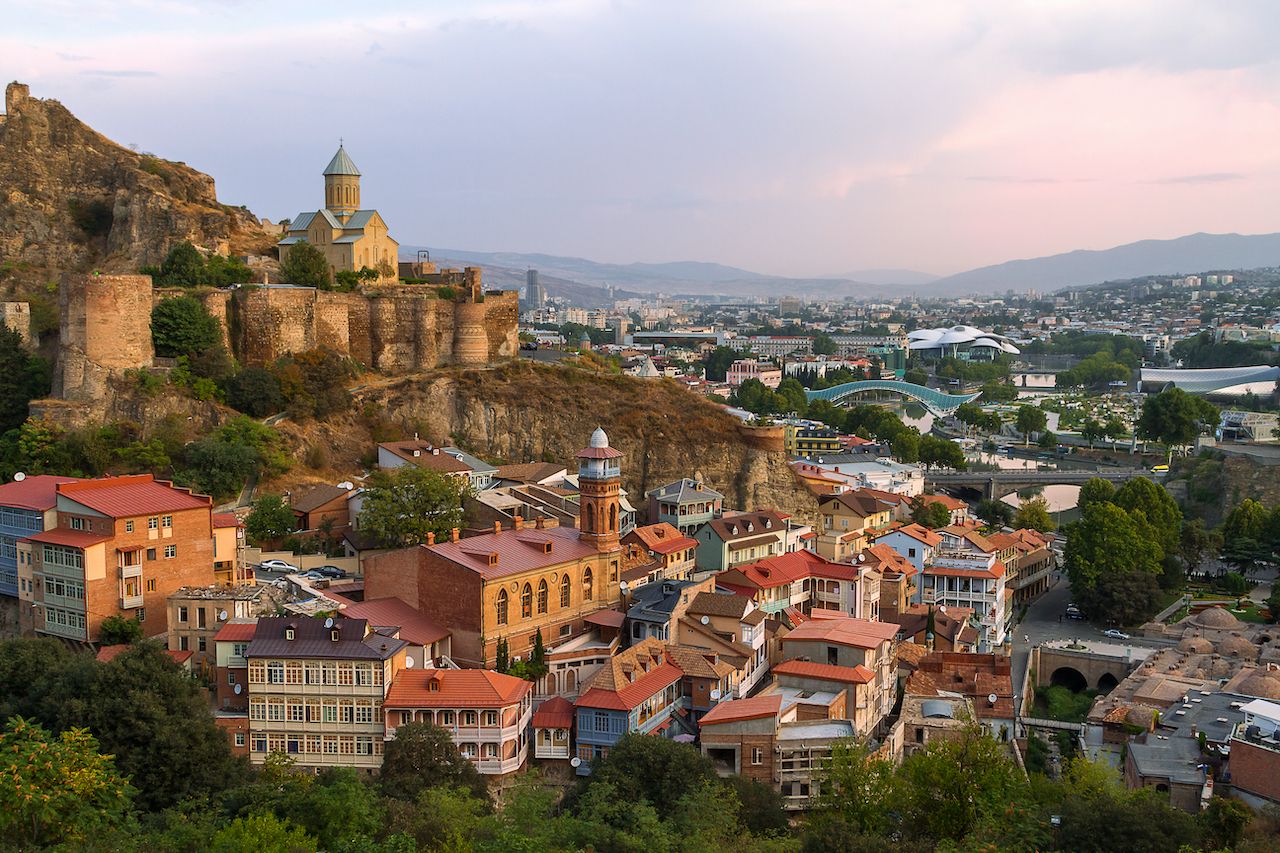
Photo: MehmetO/Shutterstock
Located at the crossroads between Asia and Europe, Georgia, like Estonia, is often underrated. Due to the mix of culture and tumultuous history, Georgia’s colorful capital Tbilisi is exciting, multicultural, and worth considering if you are looking for a change of lifestyle.
To qualify for the Georgia eVisa, applicants must provide proof of remote work with a foreign company or clients—this can include a work contract, freelance agreements, or business registration documents. A minimum monthly income of $2,000 USD or at least $24,000 USD in the bank, alongside proof of health insurance and a valid passport, are also required. The application process is completed online, is free of charge, and is typically processed within 10 business days.
Germany

Photo: saiko3p/Shutterstock
Germany is welcoming those who are self-employed, but it might not come as a huge surprise that in order to apply for this visa you have to have your ducks in a row and fill out a truckload of paperwork. The country’s freelance Freiberufler visa. This visa is typically granted for six months to three years, depending on your case and submitted documents. From all the usual application forms to documentation, they ask for letters of recommendation from previous employers, a resume and cover letter, certificates of degrees, bank statements with proof of income, and a written plan of what you intend to do when you’re in the country — which we doubt partying in Berlin will suffice. While there is no fixed income threshold, authorities typically look for at least €2,000 to €3,000 per month in projected or existing income—particularly if you plan to reside in a major city like Berlin or Munich.
Iceland

Photo: Maridav/Shutterstock
Iceland, famed for its dramatic landscapes and stunning natural beauty sits just below the Arctic Circle. The country has been one of the most popular destinations for tourists over the last few years but — like many other tourist hotspots — has suffered an economic blow during the pandemic. Due to this, the Icelandic government has announced an extension to its long-term visa for those outside the European Schengen region. The Work in Iceland program is for foreign nationals who do not require a visa to visit Iceland, which includes US citizens.
The change in regulations allows remote workers to stay for up to six months in Iceland. In order to qualify, you must be able to prove that you are employed by a foreign company or give proof that you are self-employed in your country of residence. To apply, you must earn a minimum of 1 million Icelandic krona per month, which is approximately $7,920.
Malta
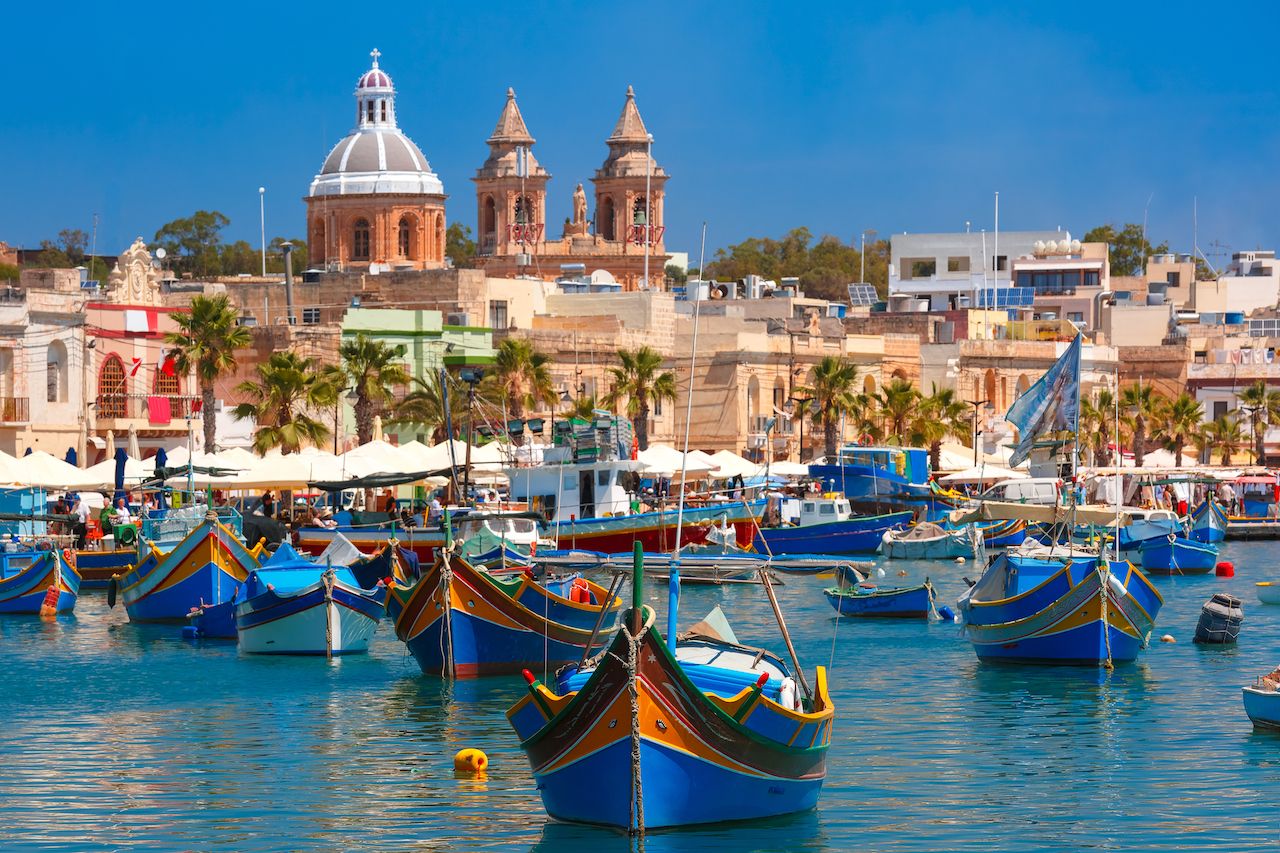
Photo: Kavalenkava/Shutterstock
The Mediterranean archipelago of Malta announced in September 2021 that they will be launching a new one-year visa for remote workers called The Nomad Residence Permit. As Malta is a member of the European Union, it has welcomed digital nomads from member states for quite some time but this is the first long-term visa for citizens outside the EU.
The application process for Portugal’s remote work visa is relatively straightforward. To apply, proof of an annual income of €42,000 (approximately $47,880 USD) is required. In addition, you’ll need to have private health insurance that covers the entire duration of your stay, along with proof of accommodation for the length of the visa. The application fee typically amounts to around $350 USD, depending on where and how you submit your application.
Portugal
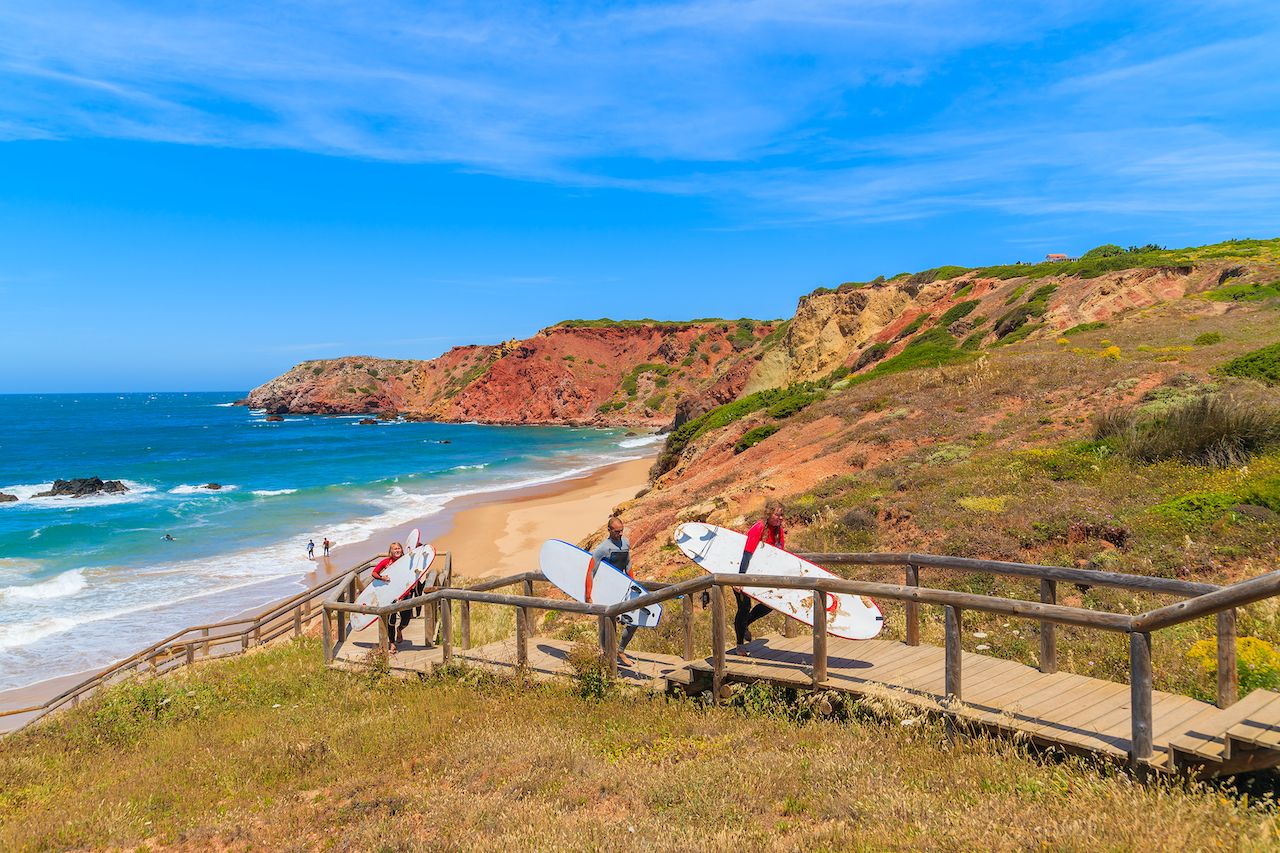
Photo: Pawel Kazmierczak/Shutterstock
With some of the coolest cities and small towns in Europe, a stunning coast, and a superb food scene, Portugal is an ideal destination for digital remote workers seeking a European base. For those planning to stay up to one year, the Temporary Stay Visa offers a straightforward and flexible option. To qualify, applicants must provide proof of remote employment or freelance work with a company or clients based outside of Portugal and must show an average monthly income of at least €3,480 (approximately $3,967 USD) over the last three months—an amount equivalent to four times Portugal’s minimum monthly wage. In addition, private health insurance that covers the duration of the stay in Portugal is required. The application fee for a Temporary Stay Visa is €110 (around $125 USD).
For those interested in a longer-term stay or eventual residency, it’s worth exploring the D8 Residency Visa. This visa leads to a renewable residence permit and offers a pathway to permanent residency and Portuguese citizenship after five years.
Spain

Photo: kavalenkau/Shutterstock
One of the reasons many people choose to work remotely in Spain is because of its strong economic ecosystem, which is full of entrepreneurs and digital nomads. The expat culture is thriving in most parts of the country, so you won’t find it hard to make English-speaking connections.
The cost of living in Spain averages out around $1,630 per month for an individual living in a city. You won’t get anything fancy for that, but the quality of life in the country is high, fresh produce is cheap, and both the cities and rural countryside are appealing. Keep in mind Wi-Fi might be an issue outside of major cities, so do a little reading before you set your heart on a farmhouse on a southern Spanish vineyard.
For a basic remote work visa valid up to one year in Spain, you need to have proof of employment outside of Spain and pass a background check. The application must be made in person and you have around a 90-day wait before you may get confirmation. You can not have a criminal background. Applicants applying alone must provide proof of a monthly income of at least 2,368€—the equivalent of 200% of the Minimum Interprofessional Salary (SMI), or approximately $2,700 USD.
Middle East + Asia
Dubai

Photo: Oleg_P/Shutterstock
In October 2020, Dubai announced its new plan that will allow remote workers and families to live in the city and have benefits that were originally only available to residents. This new visa will give people the opportunity to live there for a year with the additional benefit of not paying income tax. In order to qualify, you must make at least $3,500 per month, submit three months of bank statements, and have proof of employment. The application is not hugely expensive costing $334 and you will need to pay for an extra processing fee and health insurance.
Phillipines
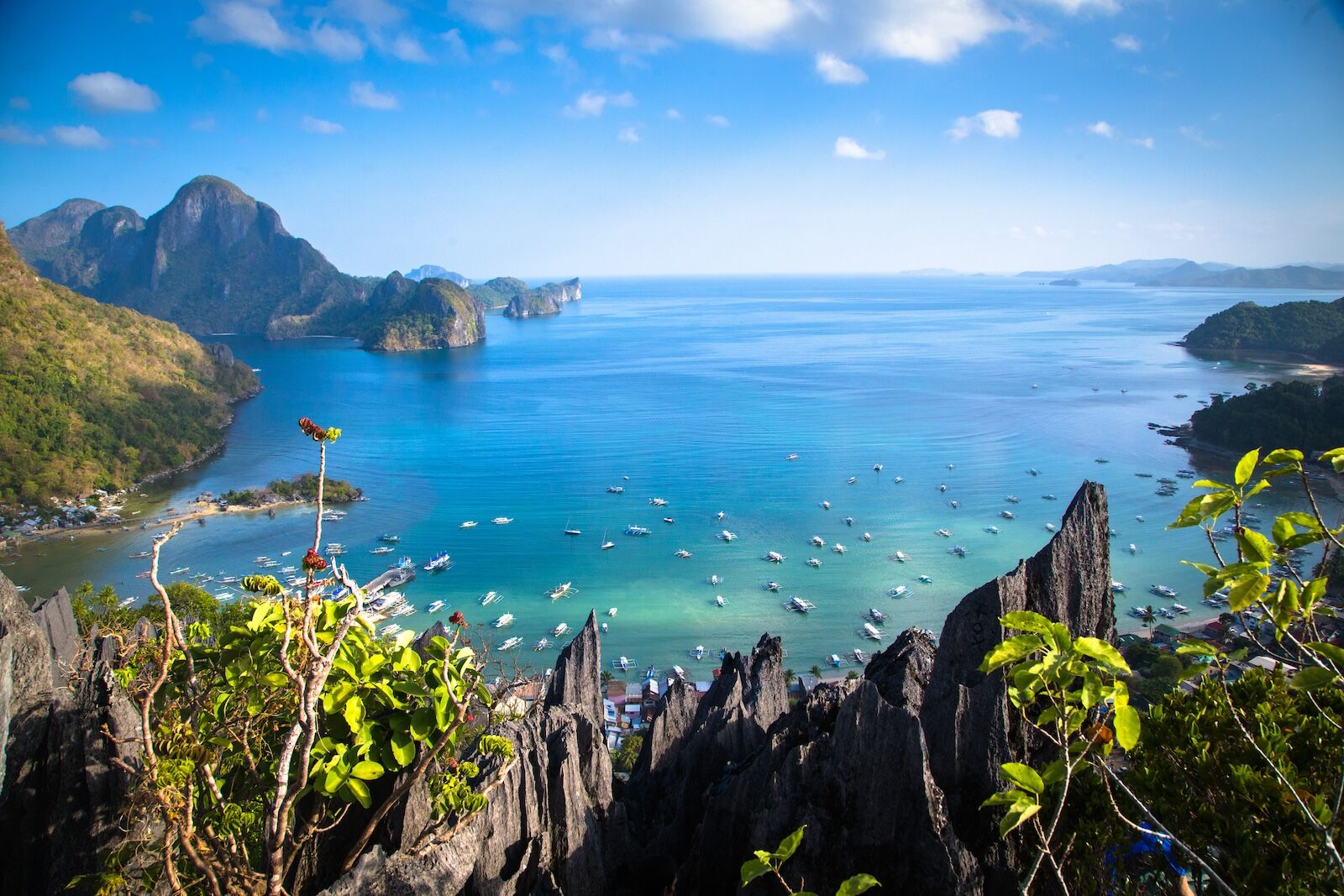
Photo: Tara Kenny /Shutterstock
The Philippines is launching its Digital Nomad Visa in June 2025, following the approval of the Digital Nomad Act by President Ferdinand Marcos Jr. This visa is aimed at attracting international remote workers and boosting the local economy. It allows eligible applicants to live and work in the country for up to two years—an initial 12-month stay with the option to renew for another year. The visa is designed for remote workers, freelancers, or business owners who are employed by or operate businesses outside the Philippines. It includes a multiple-entry feature and exempts holders from paying local income tax, requiring them to pay taxes only in their home country.
To qualify, applicants must be at least 18 years old, possess a valid passport, and earn a minimum monthly income of around $2,000 USD. They also need international health insurance that covers their entire stay and a clean criminal record. Importantly, they must come from a country that has reciprocal digital nomad arrangements with the Philippines and hosts a Philippine Foreign Service Post. Local employment is not permitted under this visa, ensuring that nomads remain financially independent of the domestic job market.
The application process is expected to take two to three months and involves registering through the Philippine e-Visa portal, submitting required documents, attending a consular appointment, and paying a fee between $300 and $600 USD. The Philippines offers a compelling environment for digital nomads, with over 7,600 islands, English as a widely spoken language, and a relatively low cost of living.
Africa
Mauritius

Photo: Daniel Malinowski/Shutterstock
Mauritius is located in the Indian Ocean and sits around 500 miles off the east coast of Madagascar. The volcanic island is surrounded by coral reefs and is home to over 600 indigenous species of plants. Its tropical climate is welcoming but that’s not the only thing attracting expats. Its multicultural and multilingual population makes for a diverse community and schools accommodate a range of languages.
At the end of October 2020, it was announced that the government will be introducing a renewable premium travel visa to encourage long-term stays. It’s inviting investors and professionals who want to work remotely from Mauritius for a maximum of one year. The current requirements for a visa seem pretty simple: You’ll need to earn at least $1,500 USD per month from outside the island, a detailed outline of the purpose of the visit, accommodation information, and other standard immigration documentation. In comparison to other plans, it seems relatively easy to apply for this visa, so it’s worth following expat forums to see if this program is too good to be true.